Software Project Management: Fundamentals, Tools, and Best Practices [2025 Guide]
In today’s digital economy, software project management (SPM) is critical for ensuring that projects are delivered on time, within budget, and at the expected quality. From planning and resource allocation to execution and reporting, effective SPM helps enterprises reduce risks, improve collaboration, and achieve business goals.
This guide walks you through the fundamentals of software project management—covering key methodologies, tools, metrics, and best practices. We also highlight why SPM is especially important for enterprises in Singapore, and how partnering with an experienced offshore vendor like Kaopiz can help you scale efficiently and maximize ROI.
Table of Contents
- What Is Software Project Management?
- Why Software Project Management Matters for Enterprises in Singapore
- What Are the Types of Management in Software Projects?
- How Offshore Software Project Management Works
- Key Lifecycle Phases in Offshore Software Projects
- Common Software Project Management Methodologies
- Software Project Management Metrics, Tools & Software
- Best Practices in Software Project Management
- How to Choose the Right Offshore Vendor?
- Why Choose Kaopiz for Software Project Management in Singapore?
- Common Challenges for Singaporean Enterprises & How Kaopiz Solves Them
- Conclusion
- FAQs
What Is Software Project Management?
Software project management is the discipline of planning, organizing, and overseeing the development of software systems from start to finish. It ensures that a project meets its objectives within defined timeframes, budgets, and quality standards while adapting to changing requirements and stakeholder needs.
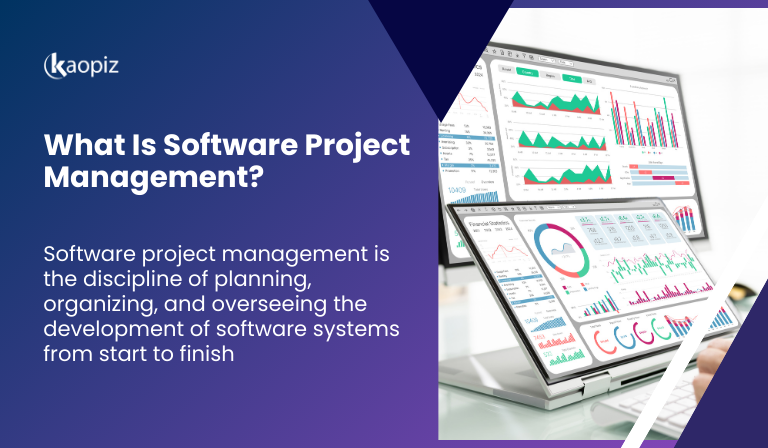
SPM focuses specifically on the unique challenges of projects. These include handling evolving requirements, coordinating distributed teams, integrating multiple technologies, and maintaining software quality throughout the development lifecycle.
At its core, software project management services cover three main goals:
- Delivering value by aligning software outputs with business objectives.
- Managing constraints such as cost, scope, and time.
- Facilitating collaboration across project managers, developers, QA engineers, designers, and stakeholders.
One of the project management software examples is that a typical project could involve building an enterprise application, revamping a mobile app, or integrating AI into an existing platform. Each of these requires careful coordination of people, processes, and tools to ensure success.
Why Software Project Management Matters for Enterprises in Singapore
As one of Asia’s leading digital hubs, Singapore demands efficient SPM to keep pace with rapid innovation, local adoption of tools, and strong government support for digital transformation:
- Singapore’s Strong Digital Transformation Push: With rapid digital adoption across industries, effective SPM is vital to keep projects on track, control costs, and maximize ROI.
- Local Adoption of Project Management Software: Enterprises increasingly rely on software in Singapore—like Jira, Asana, or Trello—to improve collaboration, reporting, and efficiency.
- Government Support and Industry Trends: Initiatives such as Smart Nation and digital transformation grants further drive enterprises to modernize, making structured project a key competitive advantage.
By combining structured project management with supportive policies and advanced tools, Singaporean enterprises can deliver projects more efficiently, reduce risks, and achieve sustainable growth in the digital era.
What Are the Types of Management in Software Projects?
Effective software project management balances three key areas:
- People Management: Building teams, aligning stakeholders, and ensuring clear communication.
- Process Management: Applying workflows and methodologies like Agile, Scrum, or Waterfall to keep projects on track.
- Technical Management: Using the right tools, infrastructure, and integrations to support development and delivery.
Together, these management types help enterprises deliver successful projects on time and within budget.
How Offshore Software Project Management Works
For enterprises in Singapore, working with an offshore vendor can reduce costs and provide access to specialized talent. However, success depends on how well the process is structured between the client and the vendor.

Vendor Roles and Responsibilities
An offshore vendor typically takes responsibility for building and managing development teams, applying the right methodologies, and ensuring quality delivery. Clear agreements on scope, timelines, and deliverables are essential to avoid misalignment. Vendors also provide expertise in risk management, compliance, and scaling teams as needed.
Managing Offshore Teams Effectively
Managing remote teams requires strong coordination across time zones and cultures. Best practices include setting clear expectations, assigning dedicated project managers, and maintaining open communication channels. Regular check-ins, progress reports, and transparent issue tracking help ensure offshore teams remain aligned with business goals.
Tools, Reporting, and Communication
The right software is vital in offshore projects. Tools like Jira, Trello, and Asana enable task tracking, while platforms such as Slack or Microsoft Teams support real-time communication.
Regular reporting dashboards and automated updates give stakeholders visibility into project progress, helping enterprises maintain control even when teams are offshore.
Key Lifecycle Phases in Offshore Software Projects
Offshore software project management follows the same core lifecycle as local projects but places extra emphasis on clear communication, reporting, and alignment between client and vendor. The main phases include:
- Project Initiation & Requirements Gathering – Define goals, scope, and risks while aligning expectations between client and offshore vendor.
- Planning, Scheduling, and Resource Allocation – Create timelines, milestones, and assign the right offshore team using Agile, Scrum, or Waterfall.
- Execution & Quality Assurance – Offshore team develops and tests deliverables with code reviews, sprint demos, and QA processes.
- Monitoring, Control, and Reporting – Track progress via tools like Jira or Asana, with regular updates and transparent dashboards.
- Delivery & Closure – Finalize deliverables, conduct acceptance testing, share documentation, and transition into maintenance or scaling.
Common Software Project Management Methodologies
Different software project management methodologies provide structured approaches to planning, executing, and delivering projects. Choosing the right one depends on project size, complexity, and business goals. Here’s the comparison table between the 4 methodologies:
| Methodology | Strengths | Weaknesses | Best Use Cases |
|---|---|---|---|
| Agile | Flexible and iterative; encourages collaboration and continuous feedback; adapts quickly to change. | Can lack structure; scope creep risk if not managed well. | Dynamic software development projects, startups, fast-changing requirements. |
| Scrum | Clear roles and sprints; frequent deliverables; strong focus on team accountability. | Requires discipline and experienced Scrum Masters; can be intensive for teams. | Complex projects needing rapid iterations, product development, innovation-driven projects. |
| Waterfall | Simple, structured, and easy to manage; clear milestones and documentation. | Rigid; hard to adapt once the project starts; long time before results are visible. | Projects with fixed requirements, compliance-heavy systems, government projects. |
| Hybrid Models | Combines Agile flexibility with Waterfall’s structured planning; balances adaptability and predictability. | More complex to manage; requires careful coordination. | Large-scale enterprise projects, long-term initiatives balancing control with flexibility. |
Software Project Management Metrics, Tools & Software
To ensure projects stay on track and deliver value, enterprises rely on metrics, tools, and software. These provide visibility into performance, improve collaboration, and help decision-makers manage resources effectively.
Metrics to Track in Software Project Management
Tracking the right metrics helps enterprises measure progress, identify risks early, and ensure projects deliver value. The most important software project management metrics include:
- Time (Schedule Performance) – Tracks whether tasks and milestones are completed on time using indicators like schedule variance or sprint velocity.
- Cost (Budget Adherence) – Monitors actual spending against planned budgets to prevent overruns and maximize ROI.
- Scope (Requirements Coverage) – Ensures that all agreed features and deliverables are completed without uncontrolled scope creep.
- Quality (Defect Density & Test Coverage) – Measures software reliability and stability through bug counts, test pass rates, and customer-reported issues.
- Customer Satisfaction – Often tracked through feedback surveys, adoption rates, or Net Promoter Score (NPS).
By monitoring these metrics, enterprises can make informed decisions, keep projects aligned with business goals, and ensure offshore or onshore teams remain accountable.
Features to Look for in Software Project Management Tools
Choosing the right tools is critical for keeping teams aligned and projects on track.

Key features to look for include:
- Collaboration and Communication – Built-in chat, comments, and file sharing to keep teams—onshore and offshore—connected in real time.
- Real-Time Reporting & Dashboards – Visual insights into progress, costs, and timelines to help managers make quick, informed decisions.
- Scalability & Integrations – Ability to grow with your organization and integrate with tools like GitHub, Slack, or cloud services.
- Security & Compliance – Robust access control, data encryption, and compliance with regulations (e.g., GDPR, PDPA in Singapore).
- Task and Resource Management – Easy tracking of assignments, deadlines, and workload distribution across teams.
- Automation – Features like recurring tasks, reminders, and AI-powered updates that reduce manual effort.
A tool that combines these features ensures smoother workflows, greater transparency, and stronger accountability in software development project management.
Top Software Project Management Tools & Software
Enterprises today have access to a wide range of tools designed to improve collaboration, transparency, and efficiency. Some of the most popular options include:
- Jira – A robust tool for Agile and Scrum projects, offering sprint planning, backlog management, bug tracking, and advanced reporting.
- Trello – A user-friendly Kanban-style tool ideal for visual task tracking and smaller team projects.
- Asana – Helps teams manage tasks, deadlines, and priorities with clear workflows and integrations.
- ClickUp – Combines project management, docs, time tracking, and reporting in one customizable platform.
- Monday.com – Offers intuitive dashboards, automation, and cross-team visibility for larger enterprises.
Modern software increasingly integrates AI and automation for project tracking and boosting efficiency. Features like predictive task timelines, automated reminders, smart workload balancing, and real-time risk detection help managers make proactive decisions. For enterprises in Singapore, these capabilities are especially valuable when coordinating offshore software development projects, where visibility and accountability are critical.
By combining traditional tools with AI software project management, businesses can ensure faster delivery, reduced errors, and higher ROI from their projects.
Best Practices in Software Project Management
Even with the right tools and methodologies, many projects fail without disciplined execution.

Following best practices in project planning in software project management helps enterprises reduce risks, improve collaboration, and deliver consistent results.
- Clear Goal Setting – Define project objectives, scope, and success criteria early to align stakeholders and prevent misunderstandings.
- Strong Project Planning – Break down tasks, allocate resources effectively, and set realistic timelines with room for iteration.
- Risk Management – Identify potential risks in cost, timeline, or quality, and prepare contingency plans in advance.
- Continuous Monitoring & Feedback – Use software to track KPIs, gather regular feedback, and adapt plans as needed.
- Leveraging AI & Automation – Automate repetitive tasks like reporting, reminders, or bug tracking to save time and improve accuracy.
- Effective Communication – Establish regular check-ins, transparent reporting, and open channels between onshore and offshore teams.
By applying these best practices, enterprises in Singapore can better manage complex software development projects, scale offshore teams confidently, and achieve higher ROI on their digital initiatives.
How to Choose the Right Offshore Vendor?
Selecting the right offshore partner is one of the most critical decisions. A strong vendor not only provides skilled engineers but also ensures smooth communication, predictable delivery, and long-term scalability. To make the right choice, enterprises should evaluate software project management partner on several key factors:
- Proven Expertise and Track Record – Look for vendors with a portfolio of successful software development projects in your industry, supported by client references or case studies.
- Project Management Capabilities – Assess how the vendor manages planning, reporting, and risk. A mature partner will use structured methodologies (Agile, Scrum, Hybrid) and robust software.
- Communication and Collaboration – Ensure the vendor has bilingual or experienced project managers (e.g., BrSEs for Japan, English-speaking PMs for Singapore) and established processes for real-time communication.
- Scalability and Flexibility – Choose a partner who can scale teams quickly, adapt to changing requirements, and provide both project-based and staff augmentation models.
- Quality Assurance and Compliance – Confirm the vendor follows strict QA processes, security protocols, and complies with regulations such as GDPR or PDPA in Singapore.
- Cultural Fit and Long-Term Partnership – Beyond technical skills, cultural alignment and a commitment to collaboration are essential for sustainable success.
By carefully evaluating these factors, enterprises can identify an offshore development partner that reduces risks, maximizes ROI, and becomes a trusted extension of their team.
Why Choose Kaopiz for Software Project Management in Singapore?
With over a decade of experience and a team of 600+ engineers, Kaopiz has become a trusted software development company for enterprises in Singapore, Japan, and across APAC.
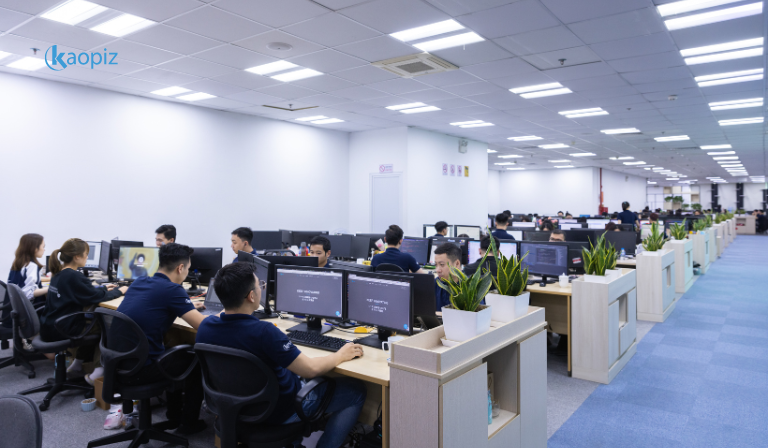
We combine technical excellence with a deep understanding of business needs, helping clients with a 98% satisfaction rate deliver complex software development projects on time and within budget.
- Proven Track Record: 500+ successful projects across industries such as finance, healthcare, retail, logistics, and manufacturing.
- Flexible Engagement Models: From full offshore project delivery to staff augmentation, Kaopiz adapts to your needs with scalable, cost-effective teams.
- Expert Project Management: Our bilingual BrSEs and certified Scrum Masters ensure smooth collaboration, clear reporting, and risk management.
- Advanced Tools & Methodologies: We leverage Agile, Scrum, and Hybrid approaches alongside tools like Jira, Trello, and ClickUp to guarantee transparency and efficiency.
- Focus on Quality & Compliance: As an ISTQB Platinum Partner and ISO 27001 certified company, we follow strict QA processes and ensure data security and regulatory compliance, including PDPA in Singapore.
- Innovation with AI & Automation: Beyond traditional SPM, we integrate AI and automation in software project management to enhance productivity and automate reporting.
By choosing Kaopiz, Singaporean enterprises gain not just an offshore vendor but a long-term custom software development project management partner dedicated to delivering reliable, scalable, and high-quality solutions.
Common Challenges for Singaporean Enterprises & How Kaopiz Solves Them
Many enterprises in Singapore face hurdles when managing complex projects, especially with offshore teams. Kaopiz helps clients overcome these challenges with proven strategies, tools, and experience.
| Challenge | Impact on Enterprises | Kaopiz’s Solution |
|---|---|---|
| Managing Remote Offshore Teams | Miscommunication, delays, and cultural gaps reduce efficiency. | Bilingual BrSEs and experienced PMs bridge communication, ensuring transparency and smooth collaboration. |
| Ensuring Timely Delivery & Cost Efficiency | Projects risk going over budget or missing deadlines. | Agile/Scrum practices with tools like Jira and ClickUp keep delivery predictable and cost-effective. |
| Mitigating Technical & Compliance Risks | Non-compliance with standards (e.g., GDPR, PDPA) and poor quality control can lead to penalties and system failures. | ISO 27001 certification and ISTQB Platinum Partner QA practices ensure quality, security, and compliance. |
| Scaling Teams & Adapting to Changing Requirements | Difficulty adjusting resources slows innovation and response to market changes. | Flexible offshore model enables rapid scaling and quick adaptation without compromising quality. |
Conclusion
Strong software project management is vital for Singaporean enterprises to deliver projects on time, on budget, and with real business impact. With the right methodologies, tools, and offshore partner, companies can reduce risks, scale efficiently, and stay competitive.
At Kaopiz, we combine proven expertise, certified project managers, and flexible offshore models to help enterprises achieve success in their digital transformation journey.
FAQs
- What Are the Fundamentals of Software Project Management?
- The fundamentals include clear goal setting, project planning, resource allocation, risk management, and continuous monitoring. These ensure software development projects are delivered on time, within budget, and at the expected quality.
- What Are Examples of Software Project Management Tools?
- Popular tools include Jira (Agile & Scrum), Trello (Kanban boards), Asana (task and workflow management), ClickUp (all-in-one platform), and Monday.com (automation and dashboards).
- How to Manage Software Development Projects Effectively?
- Adopt the right methodology (Agile, Scrum, Waterfall, or Hybrid), use project management software for transparency, set clear milestones, and maintain strong communication between onshore and offshore teams.
- How to Ensure Quality with Offshore Software Vendors?
- Choose vendors with a proven track record, strong QA processes, and relevant certifications (e.g., ISO 27001, ISTQB). Regular testing, progress reporting, and clear acceptance criteria are key to maintaining quality.
- What Is the Typical ROI of Outsourcing Software Projects?
- ROI varies, but enterprises often save 40–60% in development costs by outsourcing, while gaining access to specialized skills and faster delivery. The exact ROI depends on project scope, vendor expertise, and effective project management.
Trending Post

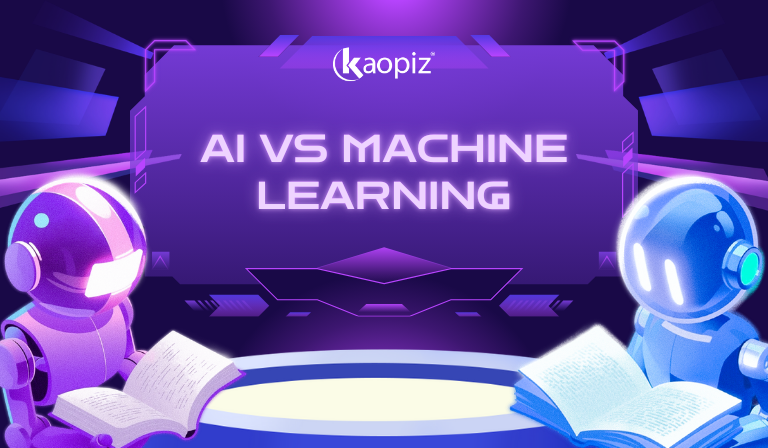
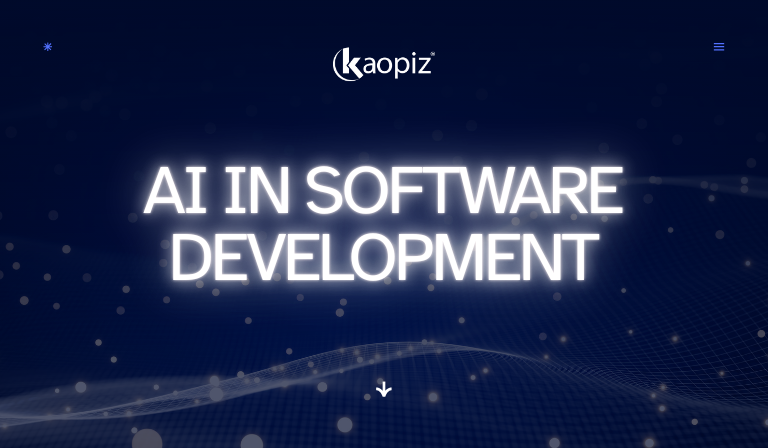
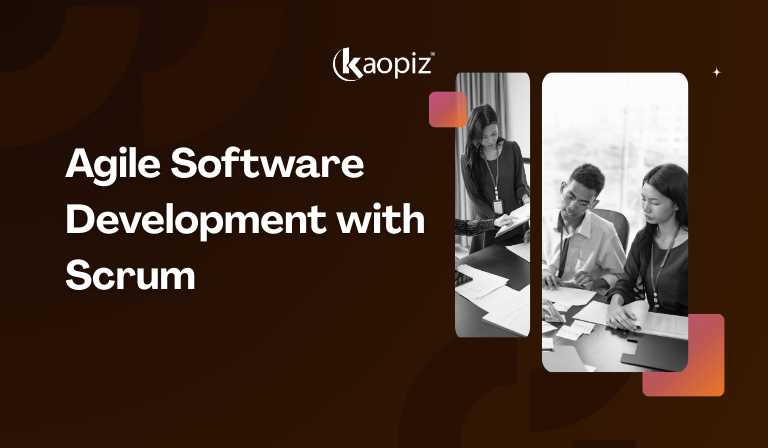

















No Comments yet!